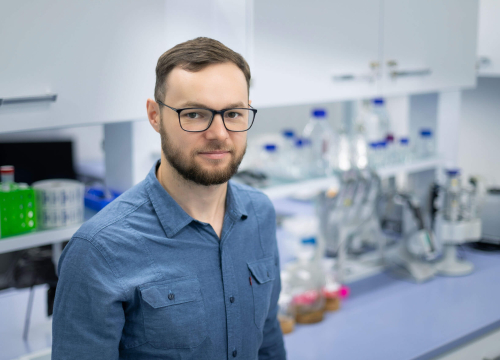Mechanisms leading to urinary tract infections recurrence investigated by our researchers

Persister cells tolerate antibiotics
Persister cells are a special type of bacteria cells, capable of surviving the attacks of the immune system as well as antibiotic treatments. This is called antibiotic tolerance. Unlike resistant bacteria, these cells do not grow in the presence of an antibiotic; instead, they become dormant and survive through the treatment. Because persister cells represent only a minor part of the entire population of microorganisms, they are practically undetectable during antibiotic therapy. Consequently, the infection may seem to have been eradicated. Yet after the end of treatment these regain their viability, they multiply and form a new bacterial population, which leads to recurrence of the disease. This is an issue not only because of the risk to the patient’s health but also because a recurring infection will probably require a second antibiotic therapy cycle. In this way, persister cells foster growth of antibiotic resistance.
Understanding the mechanisms at the root of persister cells dormancy
The Microbiota Lab team’s research is focused on mechanisms triggering exit from the dormant state and growth resumption in UPEC persister cells.
Within the scope of the project, we first analyze the process of neutralizing specific intracellular toxins. The techniques we use enable us to study the processes occurring in cells during the growth resumption after antibiotic treatment on single cell level. The analysis covers the role of the source of carbon, energy levels of persister cells, and the dynamics of changes in gene expression profiles. The findings of this part of the project will provide grounds for understanding those processes occurring inside a cell which are indispensable from the perspective of persister cells exiting their dormant state.
The other part of project research is a detailed analysis of the host-pathogen interactions. To accomplish this, we will investigate the UPEC persister cell growth resumption process in an advanced bladder cell culture, as well as the presence of UPEC cells in human intestinal microbiota ex vivo. The objective of our team is to provide a complete representation of the mechanisms and signals during the host-pathogen interaction that enable persister cells to exit the dormant state. This will bring us closer to an understanding of the grounds for UTI recurrence.
Even though the project is targeted at studying UPEC bacteria, it also defines the fundamental properties of the life cycle of persister cells. The findings can therefore be used to develop new treatment options, not just for recurrent urinary tract infections but also other chronic bacterial diseases.
The project entitled “More than antibiotic resistance. Understanding the mechanisms of growth resumption in persister cells of uropathogenic E. coli.”, with doctor Marcin Równicki as leader, is being pursued at Microbiota Lab, in collaboration with Friedrich Schiller University Jena.
The project has been awarded PLN 897,984 in funding from the National Science Centre’s SONATINA 7 scheme.
Editor: Communication and Promotion Office
Fot. Michał Teperek; Communication and Promotion Office